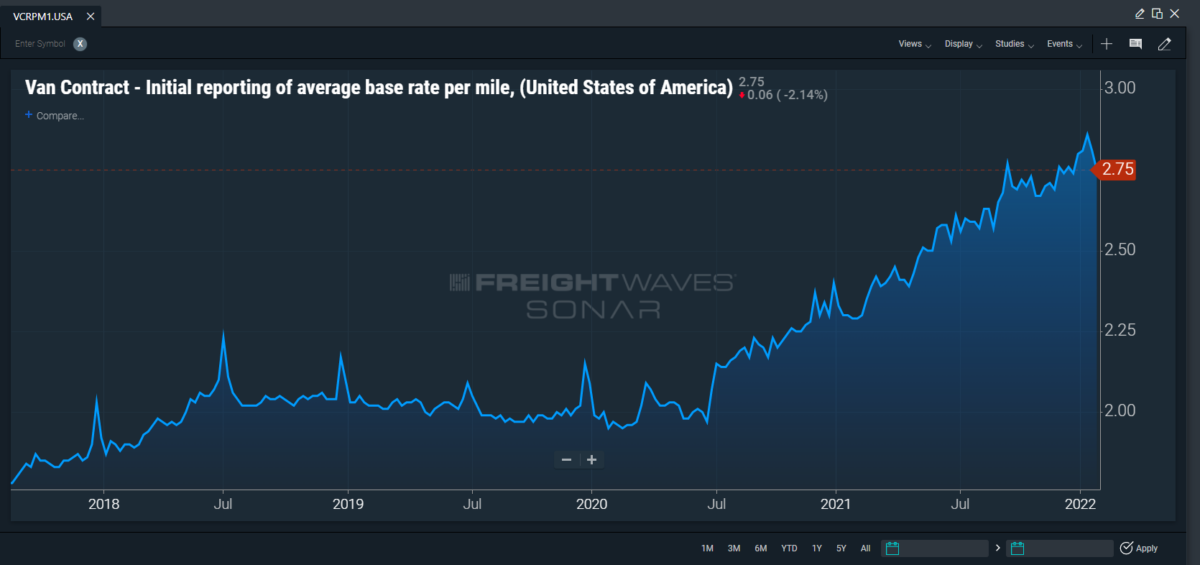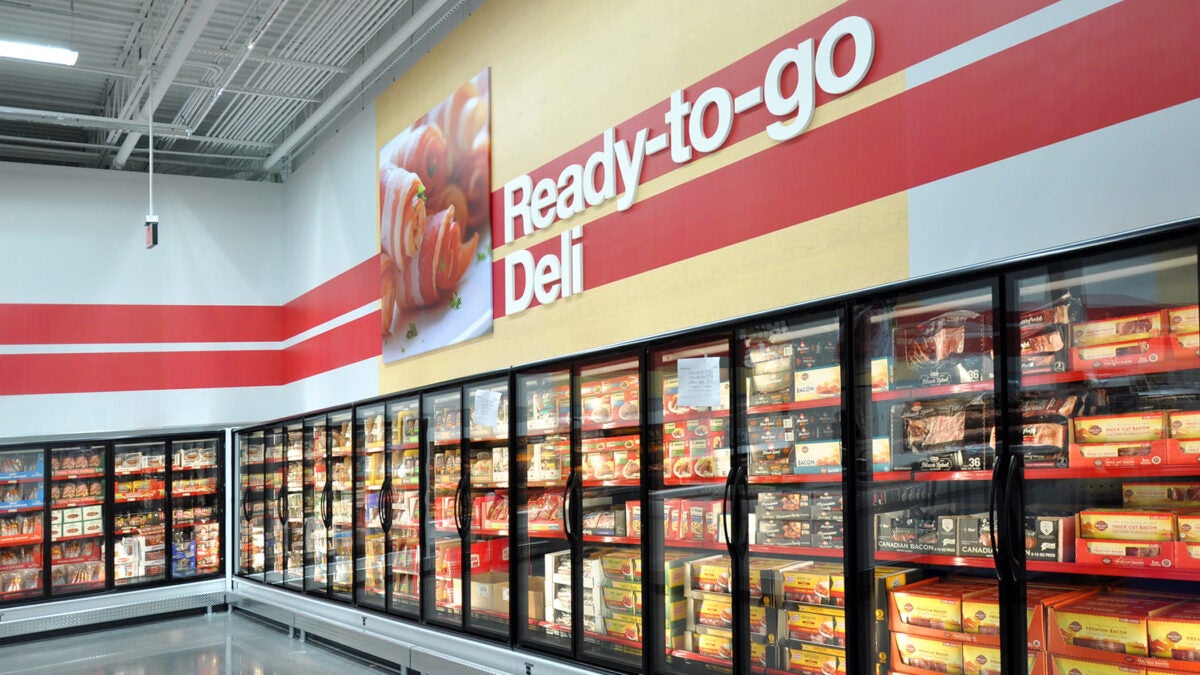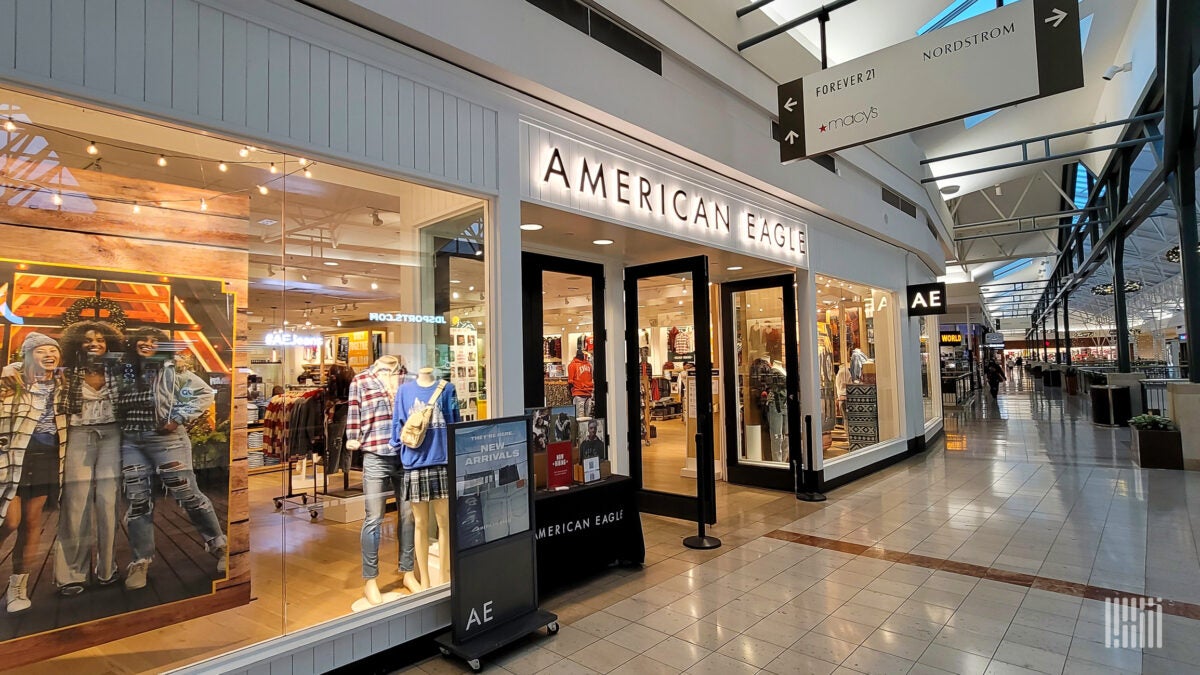BJ’s Wholesale Clubs. American Eagle Outfitters. Ashley Furniture. They are among a growing trend of retailers buying up transportation and logistics assets.
Over the last four decades, trucking capacity was generally plentiful and retailers were more than happy to outsource it, explained Gary Petty, president of the National Private Truck Council (NPTC). Freight rates were low and there was no shortage of “bottom-feeder carriers” willing to haul items cheaply.
“Companies could pick and choose from carriers,” Petty told Modern Shipper. “[As a result] transportation generally just sort of fell off the focus of corporate America, so outsourcing became the buzzword. In the last five years, and especially since COVID, what we are seeing is corporations have elevated transportation to a higher level of [importance].”
Petty, whose association provides benchmarking and other support services to the nation’s private trucking fleets (those run by companies with primary businesses not in trucking), said he has seen an uptick in interest in his organization in the past few years and has had several recent conversations with big box retailers exploring the benefits of a private fleet.
“Those that had incumbent private fleets are growing them faster post-COVID, and those that didn’t are getting a handle on their capacity by acquiring companies outright or starting private fleets from scratch,” he said.
Petty said that private fleets offer several advantages over outsourced transportation services, including in-house capacity and drivers who tend to be more loyal, resulting in lower turnover. That is due in part to the average pay for a private fleet driver surpassing $80,000 per year.
The primary reason most businesses turn to private fleets, though, is the guaranteed capacity.
“If you are operating a grocery store and you have 100,000 SKUs, to keep your customer base you need to keep a 100% replenishment cycle of items. If people can’t find items, they go somewhere else,” Petty said.

Rising rates are costing retailers
With the supply chain chaos brought on by COVID, disruptions and rates have skyrocketed, and that has helped trigger renewed interest in private fleets.
According to FreightWaves’ SONAR data, the van contract rate (SONAR: VCRPM1.USA) has been on a steady climb since 2017 when it was around $1.70 per mile. It reached $2.86 per mile on Jan. 9 and while it has receded a bit — down to $2.75 by Jan. 23 — the rate remains more than a $1 more per mile over its 2017 lows.
The result is that for every mile a retailer’s freight travels, it’s costing at least $1 more than just a few years ago. That is adding up to hundreds of thousands of dollars in additional transportation costs annually for larger retailers.
And to complicate matters, retailers using outsourced transportation providers are often at the mercy of the market, even if they have contracts for capacity with for-hire carriers. FreightWaves strategic analyst John Paul Hampstead in 2019 detailed that dynamic, what is often called “paper rates.”
Paper rates can be defined several ways but are generally considered to be “contract rates [that] by no means guarantee that a shipper will find capacity at a certain price or that a carrier will receive a certain volume at that price,” Hampstead wrote. Or, as one broker told him, “It’s a negative term applied to contract rates that are no longer working for whatever reason. They’re just good on paper.”
In essence, despite what the contract may say, if the for-hire carrier receives a better rate for their capacity, they may take it, leaving the retailer without capacity at worst, or at a minimum paying a higher spot market rate for last-minute capacity. The result in either case is empty store shelves in the short term and lost sales.

Why rent when you can own?
In January, BJ’s Wholesale Club (NYSE: BJ) announced it was acquiring four refrigerated distribution centers and those facilities’ related private fleets of longtime transportation partner Burris Logistics. In the past year, BJ’s competitor Costco acquired last-mile delivery company Innovel, Ashley Furniture acquired the western division assets of Wilson Logistics, and American Eagle (NYSE: AEO) has made two acquisitions — last-mile technology provider AirTerra in May 2021 and then e-commerce fulfillment company Quiet Logistics for $360 million in December.
While the BJ’s acquisitions only cover a small portion of the company’s overall network, which covers 225 club locations in 17 states, it is another example of the steps retailers are taking to protect their supply chains — supply chains that are becoming vital not only for in-store fulfillment but also for e-commerce fulfillment.
“We look forward to welcoming all of the talented Burris Logistics team members who have supported our business to the BJ’s supply chain team,” said Jeff Desroches, executive vice president and chief operations officer of BJ’s Wholesale Club, in a statement announcing the acquisition.
“The addition of these four facilities and the private fleet is part of a larger strategy to expand and scale efficient supply chain capabilities, positioning BJ’s for continued growth while delivering the best quality and freshest products to our members.”

American Eagle spreads its wings
Shekar Natarajan, chief supply chain officer for American Eagle Outfitters Inc., owner of both the American Eagle and aerie brands, said the acquisitions of AirTerra and Quiet are part of the company’s efforts to “transform our supply chain” to fuel “significant growth opportunities for the company.”
“The supply chain industry is experiencing substantial constraints right now, and individual companies cannot gain the kind of control needed during this time,” he told Modern Shipper. “To AEO, the solution is not to continue building more distribution facilities or putting more trucks on the road — it is transforming our supply chain from within.”
AirTerra and Quiet complement each other and will add to building the overall efficiency within AEO’s supply chain, Natarajan added.
“With a combined network of locations, and resources, each link of the supply chain becomes more efficient,” he said. “Our vision is to scale our model intelligently through technology — and we see this concept positively impacting the entire supply chain ecosystem. Wherever there is disruption, there’s opportunity — and together we can bring balance and calmness through sharing and pooling.”
The pandemic accelerated this approach, Natarajan said, noting that AEO was already exploring what the supply chain of the future would look like.
“We quickly realized that accelerating our plans would be transformative to our business. Our journey to seek scale through an open supply chain network — that is the real advantage,” he said.
The future supply chain must accommodate both in-store replenishment models and e-commerce, and Natarajan said AEO recognized the importance of a multi-tenancy approach to warehouse fulfillment, thanks in part to its relationship with Quiet.
“All companies involved in e-commerce must find ways to simultaneously keep parcel costs down while delivering within two to three days,” he said. “At AEO, we’ve realized that trying to do that alone and only for ourselves is expensive and inefficient. The seed of the idea of an open and shared supply chain network came from being a customer of Quiet.”
Watch: Retailers pay for port congestion
And that is an important part of AEO’s approach — building a shared and open supply chain. Both AirTerra and Quiet have multiple clients already, including competitors of AEO; Natarajan doesn’t see that as a problem, but rather a solution to a larger problem.
“Our needs are the same as our competitors’ needs. This is not a fixed pie story where we benefit at their expense from a supply chain perspective. Shared problems require shared solutions,” he said. “Supply chains weaken due to competition — think, would you build your power grids and put copper lines to get power or draw one from a power grid?
“Our goal is to demonstrate to other retailers that the sharing economy principles that have helped bring efficiency and better value to customers with ride-sharing and home-sharing can provide a noncontinuous and disruptive leap forward for retailers and beyond. We’ve been pleasantly surprised by the readiness of industry peers to work with us.”
Vertical integration interest grows
Jason Miller, supply chain professor at Michigan State University’s Eli Broad College of Business and a noted transportation expert, said what is happening in the retail sector has played out in other segments of the economy as well.
“What we are seeing in the logistics space with acquisitions mirrors what we have seen in other sectors, such as steel mills buying scrap steel companies, and the more general move towards more vertical integration,” he said.
Miller went to explain that “dynamic transaction costs” are helping drive a trend to more vertical integration.
“As the costs of using the market increase due to uncertainty about pricing or service, vertical integration is inherently favored,” he said. “As such, until we start to see snarls worked out pertaining to labor and material availability, along with the normalization of prices, I would expect to see more vertical integration efforts.”
With a combined network of locations, and resources, each link of the supply chain becomes more efficient. Our vision is to scale our model intelligently through technology—and we see this concept positively impacting the entire supply chain ecosystem. Wherever there is disruption, there’s opportunity – and together, we can bring balance and calmness through sharing and pooling.
Shekar natarajan, chief supply chain officer, american eagle outfitters
That thought was echoed by Karen Donohue, professor and Curtis L. Carlson Chair in Supply Chain at the University of Minnesota’s Carlson School of Management.
“I think this is going to continue, and it’s going to continue for the large retailers,” she told Modern Shipper.
Donohue said what is happening is not new, and in fact Walmart (NYSE: WMT) was one of the big box retailers that took control of its supply chain back in the 1980s.
“There’s a history of retailers taking on more of their logistics processes,” she said. “It’s a form of vertical integration. In the 1980s, that was the time for big-box retailers to start building out their supply chain capabilities. More recently, with e-commerce, we’ve had some [retailers] that have been toying with going with fulfillment centers.”
Best Buy is an example of this most recent approach, Donohue said, with the company gaining more control of its fulfillment operations. The reason vertical integration takes place, though, is because of risk.
“There are classic reasons that companies vertically integrate, and one of the big reasons is that the stage becomes too risky so they decided to bring it in-house,” she said. Right now, that stage is freight rates and supply chain capacity constraints.
“With extreme costs and widespread capacity limitations of the outside carrier market getting worse, upper management sees the private fleet as an essential and necessary ‘safe harbor’ from supply chain disruptions,” Petty noted. “Corporations know they can count on their private fleets for dependability, cost efficiency, premium customer service and the highest safety standards in the industry.”
Donohue said that smaller retailers could feel a squeeze as larger ones snap up logistics and trucking companies, but there is also opportunity there – for both the retailer and the logistics companies.
“If I was a logistics company, I would be thinking about how can I service that collection of retailers because they are going to be continually pushed to … [deliver quicker]. They are going to need scale,” she said, noting that the past two years have really brought into focus for the consumer and retailers alike what is most important in retail sales.
“I think the cat’s out of the bag that the supply chain is a competitive advantage for retailers,” she said.
Click for more articles by Brian Straight.
You may also like:
Drones are flying into weather data deserts. Can they be stopped?
Navigating COVID-19 shipping chaos: Finding capacity and servicing the customer







